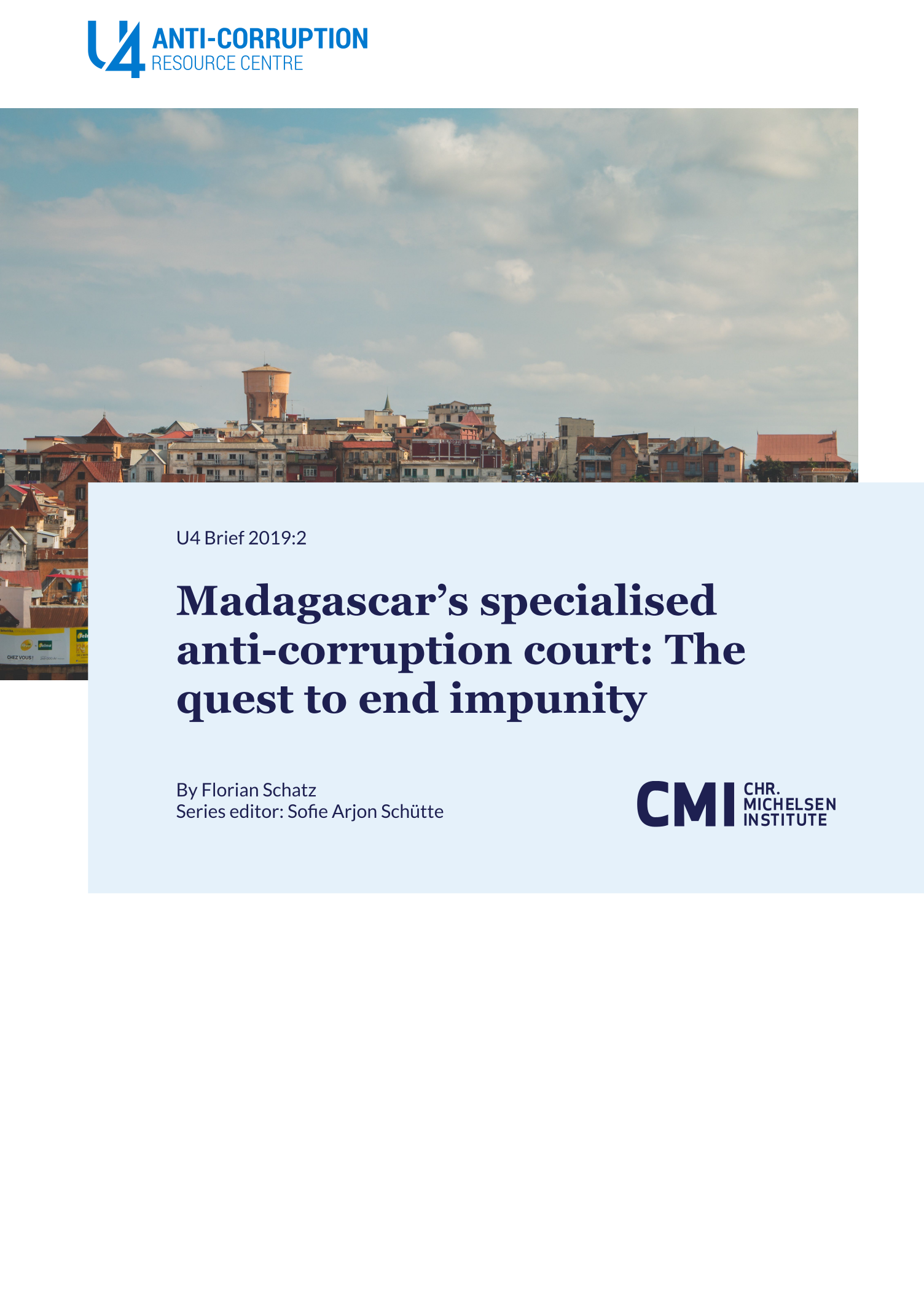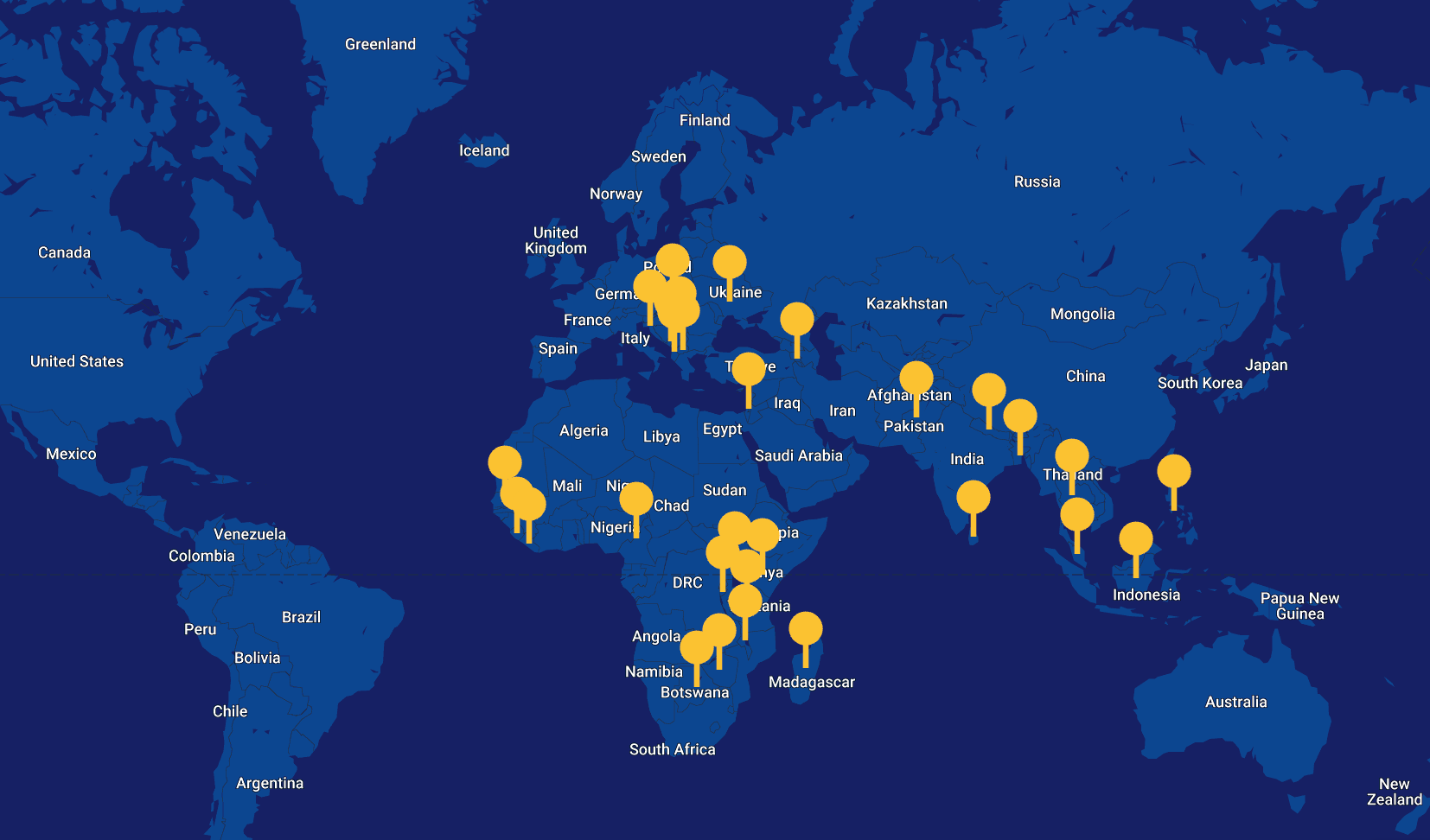Main points
- Donor conditionality leveraged by domestic reformers was instrumental in the set-up of Madagascar’s anti-corruption court.
- There are a number of special design features to protect the court’s integrity and independence.
- The specialised court is proving effective and adjudicates more cases at a higher pace and conviction rate than conventional courts.
- The new High Court of Justice undermines the ability of the anti-corruption court to prosecute and convict high-level politicians.
- Development partners should advocate the elimination of the High Court of Justice, or find other solutions to ensure high-level politicians are not above the law.


